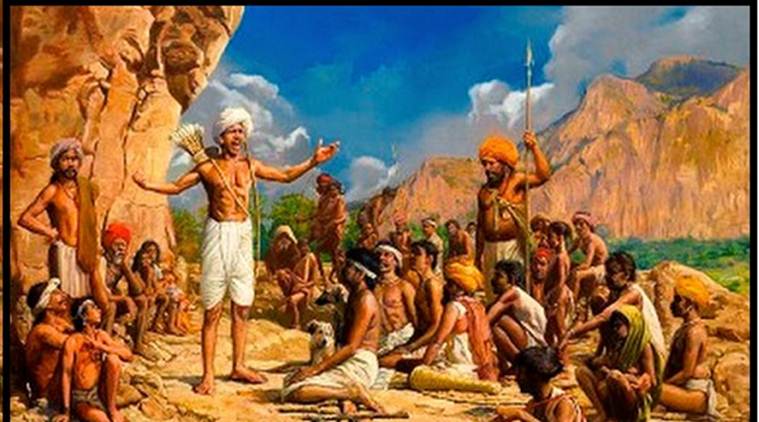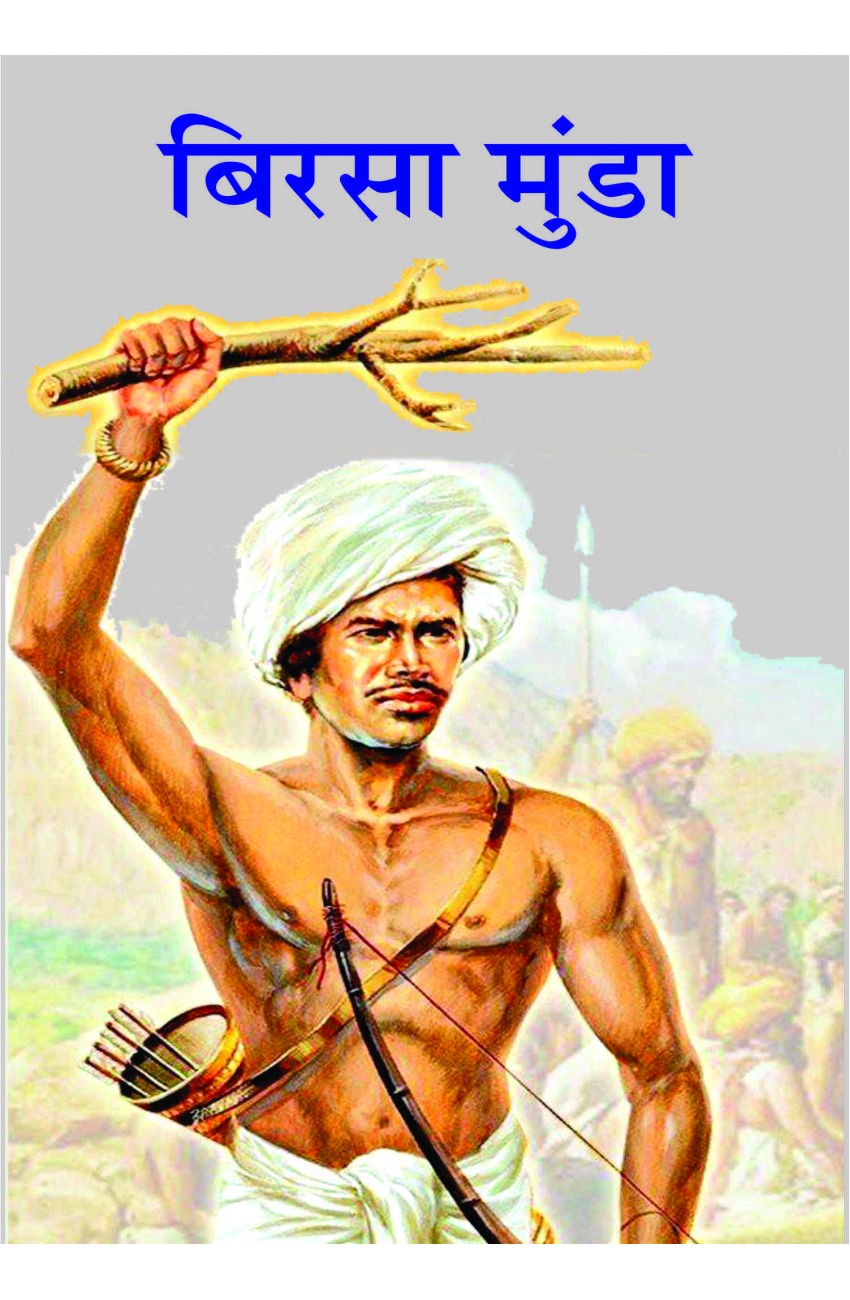As a part of the year-long commemoration of 75 years of Independence, the Union Cabinet on approved declaration of November 15 as “Janjatiya Gaurav Divas” to remember the contributions of tribal freedom fighters.
India’s freedom struggle was strengthened by several movements by tribal communities such as Santhals, Tamars, Kols, Bhils, Khasis and Mizos to name a few. The revolutionary movements and struggles organised by the tribal communities were marked by their immense courage and supreme sacrifice…However, the public at large is not much aware about these tribal heroes.
Birsa Munda was a young freedom fighter and a tribal leader, whose spirit of activism in the late nineteenth century, is remembered to be a strong mark of protest against British rule in India. Born and raised in the tribal belt around Bihar and Jharkhand, Birsa Munda’s achievements are known to be even more remarkable by virtue of the fact that he came to acquire them before he was 25. In recognition of his impact on the nationals movement, the state of Jharkhand was created on his birth anniversary in 2000.
Born on November 15, 1875, Birsa spent much of his childhood moving from one village to another with his parents. He belonged to the Munda tribe in the Chhotanagpur Plateau area. He received his early education at Salga under the guidance of his teacher Jaipal Nag. On the recommendation of Jaipal Nag, Birsa converted to Christianity in order to join the German Mission school. He, however, opted out of the school after a few years.
The impact of Christianity was felt in the way he came to relate to religion later. Having gained awareness of the British colonial ruler and the efforts of the missionaries to convert tribals to Christianity, Birsa started the faith of ‘Birsait’. Soon members of the Munda and Oraon community started joining the Birsait sect and it turned into a challenge to British conversion activities.

During the period, 1886 to 1890, Birsa Munda spent a large amount of time in Chaibasa which was close to the centre of the Sardars agitation. The activities of the Sardars had a strong impact on the mind of the young Birsa, who soon became a part of the anti-missionary and anti-government program. By the time he left Chaibasa in 1890, Birsa was strongly entrenched in the movement against the British oppression of the tribal communities.
On March 3, 1900, Birsa Munda was arrested by the British police while he was sleeping with his tribal guerilla army at Jamkopai forest in Chakradharpur. He died in Ranchi jail on June 9, 1900 at a young age of 25. Though he lived a short span of life and the fact that the movement died out soon after his death, Birsa Munda is known to have mobilised the tribal community against the British and had also forced the colonial officials to introduce laws protecting the land rights of the tribals. Birsa’s achievements as a young tribal revolutionary has continued to be celebrated over decades now and he has successfully carved out a space for himself in popular and folk literature, academia, and mass media.
स्वतंत्रता संग्राम के दौरान भारतभूमि पर ऐसे कई नायक पैदा हुए जिन्होंने इतिहास में अपना नाम स्वर्णाक्षरों से लिखवाया. एक छोटी सी आवाज को नारा बनने में देर नहीं लगती बस दम उस आवाज को उठाने वाले में होना चाहिए और इसकी जीती जागती मिसाल थे बिरसा मुंडा. बिरसा मुंडा ने बिहार और झारखंड के विकास और भारत के स्वतंत्रता आंदोलन में अहम रोल निभाया.
अपने कार्यों और आंदोलन की वजह से बिहार और झारखंड में लोग बिरसा मुंडा को भगवान की तरह पूजते हैं. बिरसा मुण्डा(Birsa Munda) ने मुण्डा विद्रोह पारम्परिक भू-व्यवस्था के जमींदारी व्यवस्था में बदलने के कारण किया. बिरसा मुण्डा ने अपनी सुधारवादी प्रक्रिया के तहत सामाजिक जीवन में एक आदर्श प्रस्तुत किया. उन्होंने नैतिक आचरण की शुद्धता, आत्म-सुधार और एकेश्वरवाद का उपदेश दिया. उन्होंने ब्रिटिश सत्ता के अस्तित्व को अस्वीकारते हुए अपने अनुयायियों को सरकार को लगान न देने का आदेश दिया था.
बिरसा मुंडा(Birsa Munda) का जन्म 1875 में लिहतु (Village: lihatu), जो रांची में पड़ता है, में हुआ था. साल्गा गांव में प्रारंभिक पढ़ाई के बाद वे चाईबासा इंग्लिश मिडिल स्कूल(Chaibasa at Gossner Evangelical Lutheran Mission school) में पढने आए. सुगना मुंडा और करमी हातू के पुत्र बिरसा मुंडा के मन में ब्रिटिश सरकार के खिलाफ बचपन से ही विद्रोह था.
बचपन में मुंडा(Birsa Munda) एक बेहद चंचल बालक थे. अंग्रेजों के बीच रहते हुए वह बड़े हुए. बचपन का अधिकतर समय उन्होंने अखाड़े में बिताया. हालांकि गरीबी की वजह से उन्हें रोजगार के लिए समय-समय पर अपना घर बदलना पड़ा. इसी भूख की दौड़ ने ही उन्हें स्कूल की राह दिखाई और उन्हें चाईबासा इंग्लिश मिडिल स्कूल (Chaibasa at Gossner Evangelical Lutheran Mission school) में पढ़ने का मौका मिला.
चाईबासा में बिताए चार सालों ने बिरसा मुंडा(Birsa Munda) के जीवन पर गहरा असर डाला. 1895 तक बिरसा मुंडा एक सफल नेता के रुप में उभरने लगे जो लोगों में जागरुकता फैलाना चाहते थे. 1894 में आए अकाल के दौरान बिरसा मुंडा ने अपने मुंडा समुदाय और अन्य लोगों के लिए अंग्रेजों से लगान माफी की मांग के लिए आंदोलन किया.
1895 में उन्हें गिरफ़्तार कर लिया गया और हजारीबाग केन्द्रीय कारागार में दो साल के कारावास की सजा दी गयी. लेकिन बिरसा और उनके शिष्यों ने क्षेत्र की अकाल पीड़ित जनता की सहायता करने की ठान रखी थी और यही कारण रहा कि अपने जीवन काल में ही उन्हें एक महापुरुष का दर्जा मिला. उन्हें उस इलाके के लोग “धरती बाबा” के नाम से पुकारा और पूजा करते थे. उनके प्रभाव की वृद्धि के बाद पूरे इलाके के मुंडाओं(Mundas) में संगठित होने की चेतना जागी.1897 से 1900 के बीच मुंडाओं और अंग्रेज सिपाहियों के बीच युद्ध होते रहे और बिरसा और उसके चाहने वाले लोगों ने अंग्रेजों की नाक में दम कर दिया. अगस्त 1897 में बिरसा और उसके चार सौ सिपाहियों ने तीर कमानों से लैस होकर खूंटी थाने पर धावा बोला. 1898 में तांगा नदी के किनारे मुंडाओं की भिड़ंत अंग्रेज सेनाओं से हुई जिसमें पहले तो अंग्रेजी सेना हार गयी लेकिन बाद में इसके बदले उस इलाके के बहुत से आदिवासी नेताओं की गिरफ़्तारियां हुईं. जनवरी 1900 में जहाँ बिरसा अपनी जनसभा संबोधित कर रहे थे, डोमबाड़ी पहाड़ी पर एक और संघर्ष हुआ था, जिसमें बहुत सी औरतें और बच्चे मारे गये थे. बाद में बिरसा के कुछ शिष्यों की गिरफ़्तारी भी हुई थी. अंत में स्वयं बिरसा 3 फरवरी, 1900 को चक्रधरपुर में गिरफ़्तार हुए.
बिरसा ने अपनी अंतिम सांसें 9 जून, 1900 को रांची कारागर में ली. आज भी बिहार, उड़ीसा, झारखंड, छत्तीसगढ और पश्चिम बंगाल के आदिवासी इलाकों में बिरसा भगवान की तरह पूजे जाते हैं.


No comments:
Post a Comment